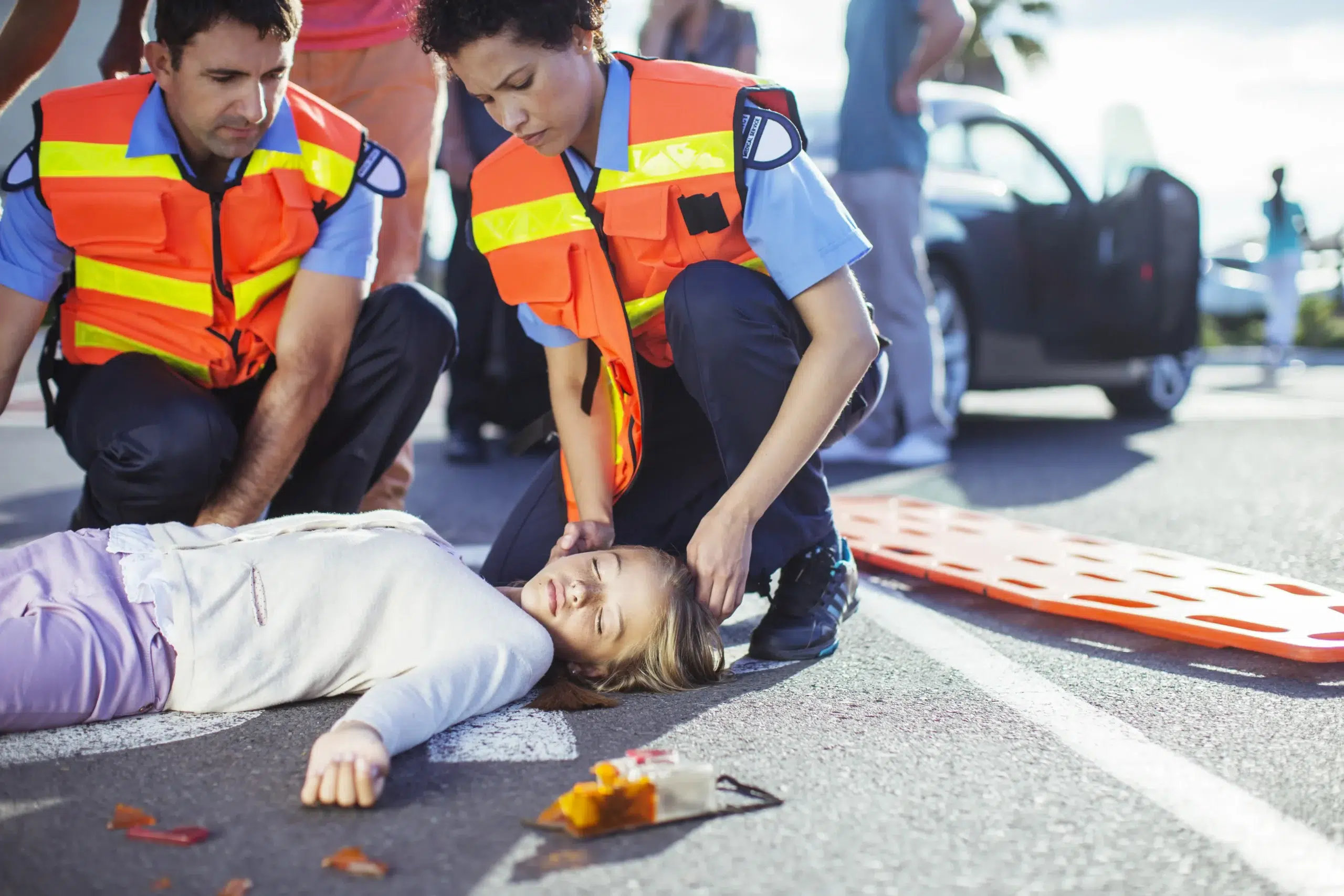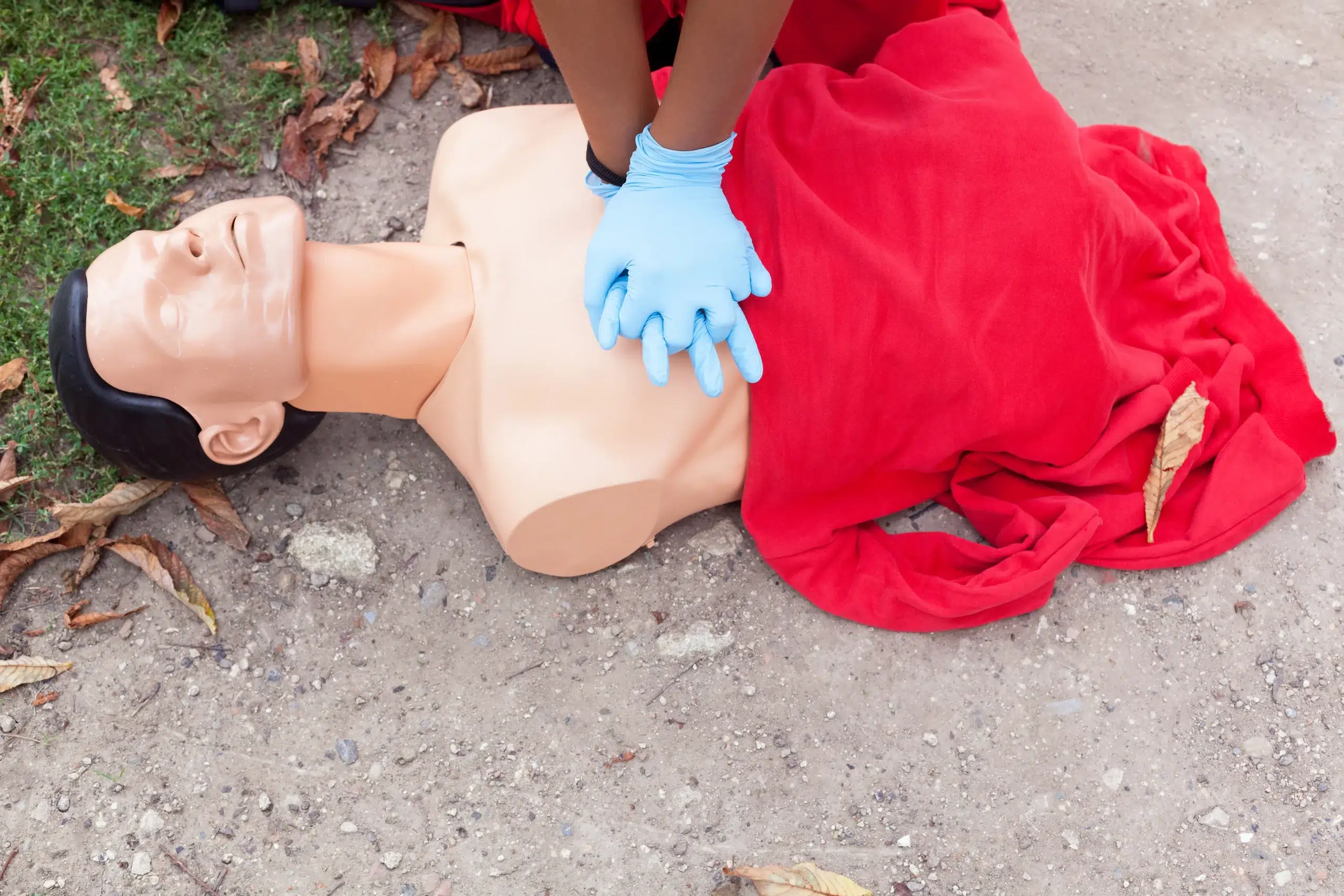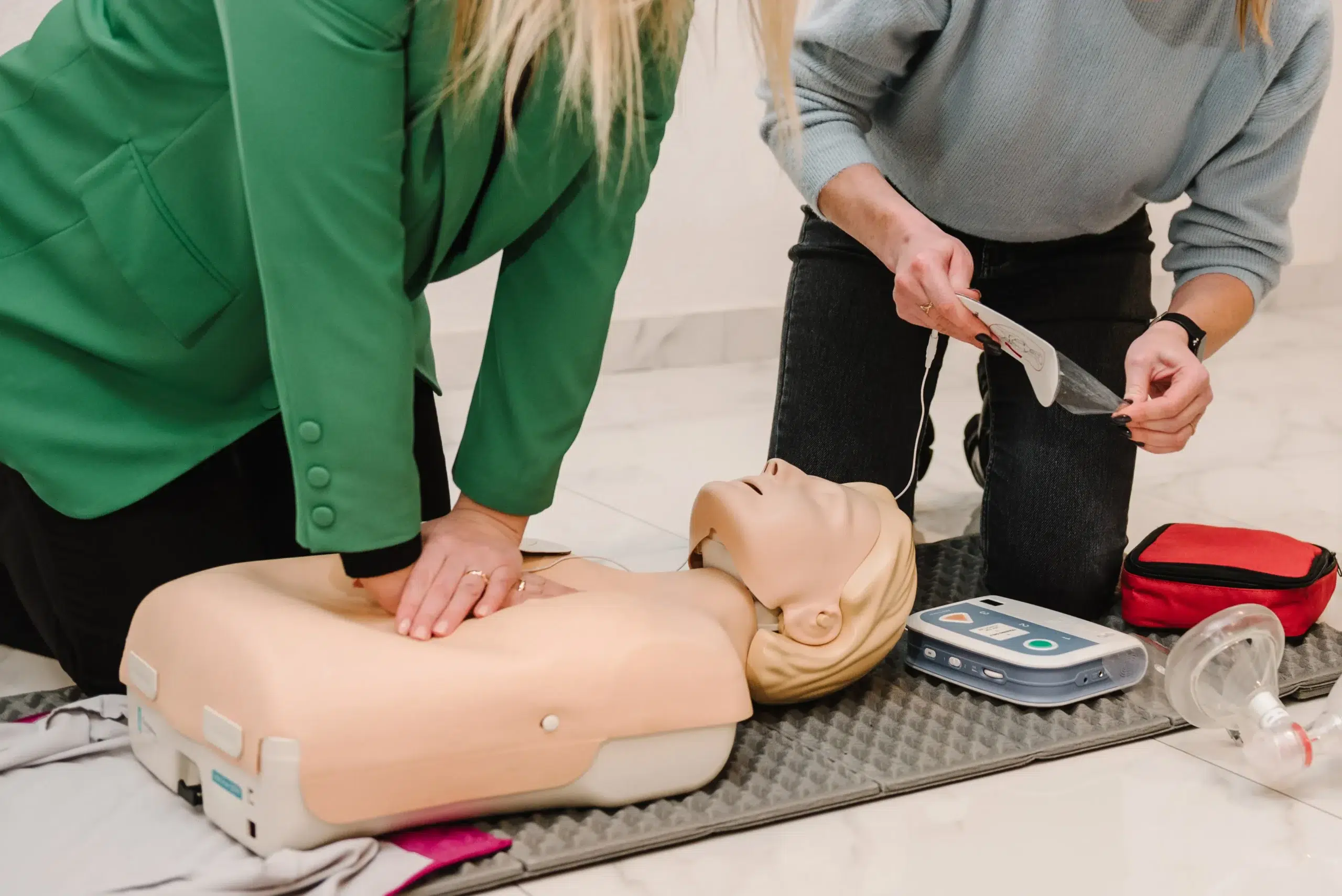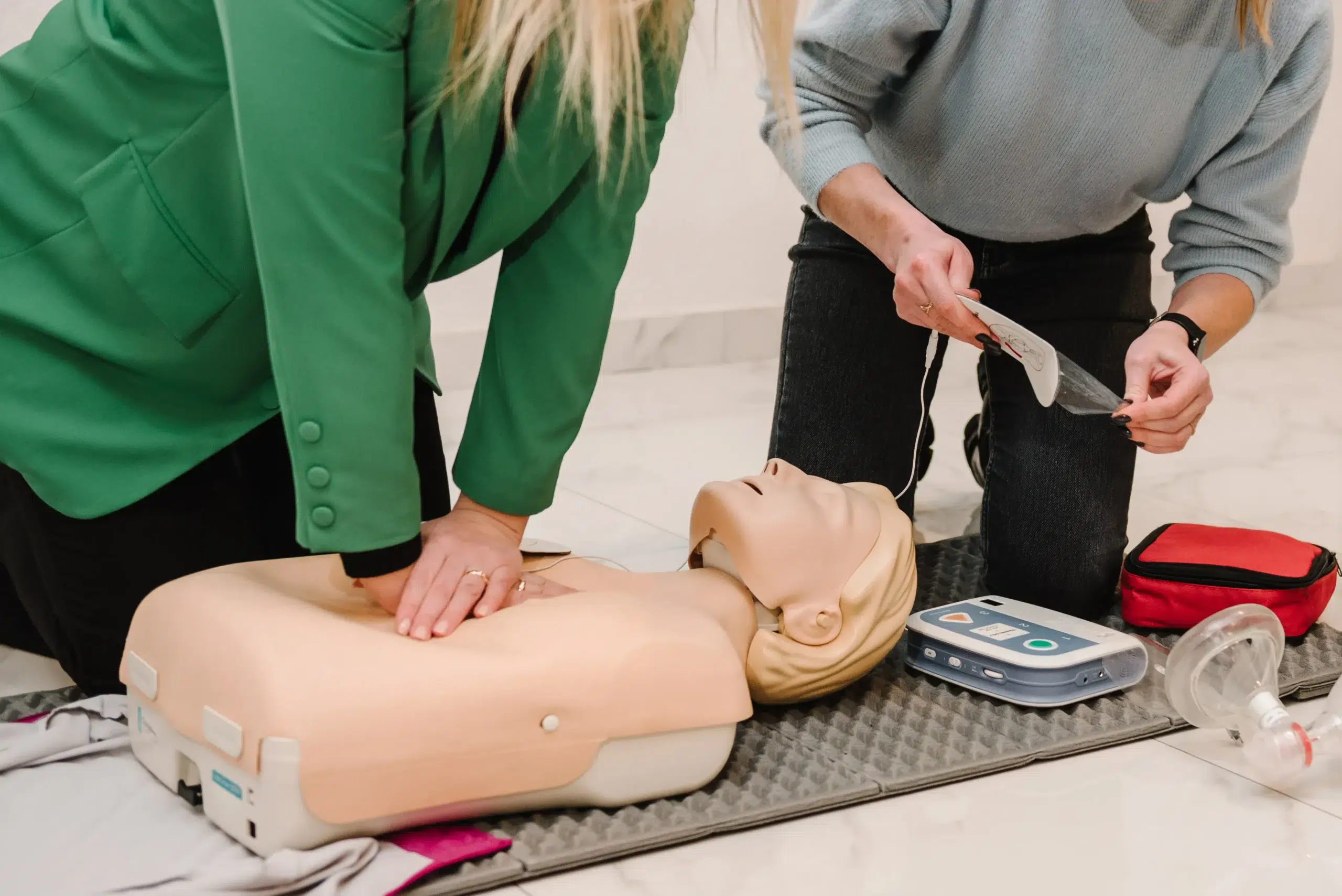Working in healthcare means constantly learning and adapting. Guidelines change, best practices evolve, and your skills need regular refreshing to stay at the top of your game. BLS certification is a prime example. It’s not a one-and-done deal; it’s a commitment to maintaining the highest standard of care. This comprehensive guide breaks down everything you need to know about BLS renewal, from understanding its importance to finding the perfect “bls renewal near me.” We’ll explore the various types of courses available, reputable training providers, what happens during a renewal course, cost considerations, and how to choose the right course for your learning style. Let’s make the renewal process smooth and stress-free.
Key Takeaways
- Regular BLS renewal sharpens your life-saving skills: Refreshed skills and knowledge of the latest guidelines empower you to confidently handle emergencies. It also demonstrates your commitment to providing excellent care.
- Finding a convenient BLS renewal course is simple: Explore online, in-person, and hybrid options to match your learning style and busy schedule. Consider accreditation, instructor experience, and student reviews when choosing a provider.
- BLS renewal is a valuable investment: Don’t let outdated skills hold you back. Renewal is an investment in your career, your patients’ safety, and your peace of mind. Explore options like group discounts to make renewal more affordable.
What is BLS Renewal & Why Do You Need It?
What is BLS Certification?
Basic Life Support (BLS) certification equips healthcare providers, first responders, and other professionals with the skills to respond to life-threatening emergencies. It focuses on providing immediate care for cardiac arrest, respiratory distress, and airway obstructions. Think of it as the foundation for saving lives in critical situations. BLS isn’t just about CPR—it covers a broader range of interventions, including recognizing the early signs of a heart attack and using an AED. It’s a crucial credential for anyone working in a healthcare setting. For a deeper understanding of BLS and common misconceptions surrounding it, take a look at this informative article that debunks common myths about BLS certification. The difference between BLS and CPR certification can be confusing, so the Red Cross clarifies the distinctions between these two important certifications.
Why Renew Regularly?
BLS skills and knowledge need regular refreshing. Guidelines and best practices evolve, and renewing your certification ensures you’re up-to-date on the latest life-saving techniques. Most BLS certifications are valid for two years. Renewal typically involves completing a refresher course, either online or in-person, and passing an exam to demonstrate competency. A current BLS certification isn’t just a piece of paper—it demonstrates you have the skills to handle emergencies effectively. Maintaining your certification is essential for professional credibility, meeting workplace requirements, and ensuring you can confidently provide care when it matters most. This guide outlines the key steps to maintain your BLS certification. For a step-by-step guide on renewing your American Heart Association BLS Certification, review this helpful resource. Learn more about why BLS renewal is so important for maintaining your skills and knowledge. Regular renewal demonstrates your commitment to providing high-quality care and staying at the forefront of life-saving practices.
How to Find BLS Renewal Courses Near You
Finding the right BLS renewal course doesn’t have to be a headache. Here are a few simple ways to locate a class that fits your needs:
Search Online
The internet is your best friend when it comes to finding BLS renewal courses. The Red Cross website, for example, has a handy search tool to locate classes near you, both online and in-person. You can filter by date, time, and location, making it easy to find a course that works with your schedule. A quick search for “BLS renewal near me” will also turn up local options, including providers like Berkeley CPR Classes offering comprehensive BLS renewal packages. Don’t forget to check our BLS course offerings at Citrus Heights CPR Classes! We offer a variety of schedules and locations to choose from.
Check Local Healthcare Institutions
Hospitals, clinics, and other healthcare institutions frequently offer BLS renewal courses, sometimes even at a discounted rate for their employees. The American Heart Association (AHA) website is another excellent resource for finding BLS renewal courses offered through various training centers and healthcare providers. Check with your local hospitals and medical centers to see what they offer. You might be surprised at the convenient options available right in your community.
Ask Your Network
Sometimes, the best way to find a great BLS renewal course is through word-of-mouth. Reach out to your colleagues, friends, and family in the healthcare field. They might have recommendations for reputable training providers or know of upcoming courses in your area. Networking can also uncover potential group discounts, so don’t hesitate to ask around! You can also check online forums and social media groups for healthcare professionals to see if anyone has recommendations.
Types of BLS Renewal Courses
When it’s time to renew your BLS certification, you’ve got options. Let’s break down the three main types of BLS renewal courses: in-person, online, and hybrid. Each has its own advantages, so you can choose the format that best fits your learning style and schedule.
In-Person Training
In-person BLS renewal courses offer a hands-on learning experience. These courses provide real-time feedback from certified instructors, which can be incredibly helpful for mastering essential skills. You’ll practice techniques on mannequins and work through scenarios with your classmates. Organizations like the American Heart Association offer these courses, and they typically last about three hours, including skills practice and testing. If you thrive in a traditional classroom setting and value direct interaction with an instructor, in-person training might be a good fit. The in-person option is also ideal if you learn best by doing and prefer practicing skills in a structured environment.
Online Training
Online BLS renewal courses offer flexibility and convenience. These courses are 100% online, allowing you to complete the modules and certification exam at your own pace, from anywhere with an internet connection. This format is perfect for those with busy schedules or limited access to in-person training locations. Online courses often incorporate videos, interactive exercises, and downloadable resources to enhance the learning experience. If you’re comfortable learning independently and prefer a self-directed approach, online training might be the best choice.
Hybrid Training
Hybrid training combines the best of both worlds. This format allows you to complete the theoretical coursework online at your own pace, then attend an in-person skills session to practice and demonstrate your proficiency. Hybrid courses offer a balanced learning experience, providing the flexibility of online learning with the hands-on practice of in-person instruction. This option is a great choice if you appreciate the convenience of online learning but also value the opportunity to practice skills with expert guidance. Hybrid courses offer a practical solution for those who want a blended approach to BLS renewal.
Top BLS Renewal Course Providers
Finding the right BLS renewal course involves understanding your options. Several respected organizations and institutions offer high-quality training. Here’s a closer look at some of the leading providers:
American Heart Association (AHA)
The American Heart Association sets the standard for CPR and emergency cardiovascular care. They offer various BLS renewal options, including online courses and in-person skills sessions. Many authorized training centers offer AHA BLS renewal courses, making it easy to find one near you. Expect clear, comprehensive training materials and experienced instructors.
American Red Cross
The American Red Cross is another well-known and trusted provider of BLS renewal courses. They also offer both online and in-person formats, providing flexibility for busy professionals. The Red Cross has a long history of providing first aid and CPR training, so you can rely on their expertise.
Citrus Heights CPR Classes
For those in the Citrus Heights, Sacramento, and Orangevale areas, Citrus Heights CPR Classes offers convenient and affordable AHA-compliant BLS renewal courses. They focus on providing high-quality instruction in a supportive environment. Check their website for their low price guarantee and group discounts. They also offer RQI classes for healthcare professionals seeking efficient skills validation. Reach out through their contact page to learn more about their offerings.
Local Hospitals & Medical Centers
Many hospitals and medical centers offer BLS renewal courses for their staff and the community. These courses are often taught by experienced healthcare professionals and may provide access to advanced training equipment. Contact your local hospitals or search online for courses in your area.
National CPR Foundation
The National CPR Foundation offers BLS renewal courses designed for healthcare providers. Their training emphasizes practical skills and real-world scenarios, preparing you for various emergencies.
ProTrainings
ProTrainings provides a range of medical certifications, including BLS renewal. They offer flexible online training options, allowing you to renew your certification at your own pace. They also offer several other certifications, making them a convenient option if you need to renew multiple credentials.
What Happens in a BLS Renewal Course?
So, you’re ready to renew your BLS certification—smart move! This section covers what you can expect during a typical BLS renewal course.
Course Length & Content
BLS renewal courses are designed to refresh your essential life-saving skills efficiently. Most courses take about three hours to complete, covering core concepts and hands-on practice. This timeframe includes time for skills practice and assessment. Many courses provide training materials like manuals or online resources. It’s always a good idea to check with your chosen provider, like Citrus Heights CPR Classes, to see what’s included. This way, you’ll know exactly what to expect on training day.
Skills You’ll Practice
A BLS renewal course isn’t just about reviewing theory; it’s about actively practicing the skills you need in a real emergency. You’ll work with instructors to refine your technique in high-quality CPR for adults, children, and infants. The course also covers AED use and other critical interventions for respiratory and cardiac arrest. This hands-on training is essential for maintaining your confidence and proficiency in responding to emergencies.
How You’re Assessed
To earn your renewed BLS certification, you’ll need to demonstrate your skills and knowledge. This typically involves a skills test where you perform CPR and other life-saving techniques in a simulated scenario. Some courses may also include a written exam to assess your understanding of key BLS principles. Once you successfully complete these assessments, you’ll receive your American Heart Association (AHA) BLS Provider eCard, which is widely recognized and accepted in healthcare settings. Check out our AHA BLS certification courses for more information.
How Much Does BLS Renewal Cost?
Getting your BLS recertified is an investment in your career and the safety of those around you. But how much does it actually cost? Let’s break down the typical price range, factors that influence cost, and ways to save.
Typical Price Range
BLS renewal courses typically range from $65 to $120. For example, providers like Berkeley CPR Classes offer a BLS course for around $120, which includes online coursework, the skills test, and your certification card. You might find slightly lower prices, around $65, for basic life support for healthcare providers at some training centers. At Citrus Heights CPR Classes, we believe in transparent and competitive pricing. Contact us for the most up-to-date pricing on our BLS renewal courses. Remember that the $65–$120 range is just a general guideline.
Factors Affecting Cost
Several factors can influence the final price of your BLS renewal course. Location plays a key role; costs can vary based on where you live and the local market. The type of course also matters. Blended learning courses that combine online learning with in-person skills sessions sometimes have different pricing than traditional classroom-based courses. Included training materials can also affect the cost. Many BLS renewal courses include materials, so check with your provider to see what’s covered. Finally, the training provider itself influences the price, as different providers have different pricing models. It’s always a good idea to compare options.
Group Discounts
If you’re renewing with colleagues or friends, explore group discounts. Many providers offer reduced rates for groups, making it a cost-effective way to recertify. Some providers offer package deals that include multiple courses or combine BLS renewal with other certifications like ACLS or PALS. For example, you can sometimes enjoy savings on three classes, good for one year, at some training centers. Check with your chosen provider to see if they offer group discounts or special packages. Citrus Heights CPR Classes is happy to work with you to find the most affordable option.
BLS Renewal: Prerequisites & Requirements
Current Certification Status
To renew your Basic Life Support (BLS) certification, you must hold a current BLS provider card from a recognized organization like the American Heart Association (AHA) or the American Red Cross. While some providers allow a short grace period (sometimes up to 30 days) after expiration, it’s generally best to renew before your card expires to avoid any lapse in your certification. This ensures you’re always prepared to respond to emergencies and meet any workplace requirements. Check with your employer or certifying organization for specific guidelines on grace periods. If your certification has been expired for an extended period, you’ll likely need to take the full BLS course again rather than a renewal course. For reliable information on BLS renewal through the American Red Cross, visit their BLS Renewal & Recertification page.
Renewal Time Frame
BLS certification is typically valid for two years. Plan to renew your certification within this timeframe. Many providers, like Citrus Heights CPR Classes, offer convenient scheduling options to fit your busy schedule. Setting reminders or scheduling your renewal course in advance can help you avoid last-minute scrambling and ensure your skills stay sharp. For guidance on renewing your AHA BLS certification, resources like Save A Life CPR can be helpful.
Eligibility Criteria
The primary eligibility requirement for BLS renewal is holding a current (or recently expired) BLS provider card. You’ll need to provide proof of your previous certification when registering for a renewal course. Renewal courses are designed for those who already have a foundation in BLS and need to refresh their knowledge and skills. These courses are typically shorter than the initial certification course and focus on the latest updates to guidelines and best practices. Heart Start CPR offers helpful information on BLS renewal and the steps involved. Maintaining your BLS certification is essential for many healthcare and other related professions, demonstrating your commitment to providing high-quality care in emergencies.
Choosing the Right BLS Renewal Course
Not all BLS renewal courses are created equal. To make sure you’re getting the best possible training, consider these key factors when selecting a course.
Accreditation & Recognition
First and foremost, confirm the course is accredited by a reputable organization like the American Heart Association. Accredited courses ensure the curriculum aligns with the latest evidence-based guidelines. This means you’re learning the most effective life-saving techniques. A provider’s reputation matters too. Look for providers with a history of quality instruction and positive student feedback. Consider checking with your employer or professional organization for recommendations.
Scheduling Options
Think about your schedule and how a course fits into your routine. Many providers offer various scheduling options, including weekend and evening classes. Some providers also offer blended learning formats that combine online coursework with in-person skills sessions. This flexibility can be especially helpful for busy professionals. If you need a class quickly, check if the provider offers same-day or next-day certification. Citrus Heights CPR Classes offers a wide variety of convenient scheduling options.
Instructor Qualifications
Experienced, certified instructors can make all the difference in your learning experience. Look for instructors who are not only certified but also passionate about teaching. A great instructor will create a supportive learning environment where you feel comfortable asking questions and practicing your skills. Check the provider’s website for information on instructor credentials or contact them directly.
Student Reviews
Reading reviews from past students can give you valuable insights into a course’s quality. Look for reviews that mention the instructor’s teaching style, the course content, and the overall learning experience. Positive student feedback can be a strong indicator of a worthwhile course.
Common BLS Renewal Myths
Let’s clear up some common misconceptions about BLS renewal. These myths can prevent healthcare providers from getting the up-to-date training they need.
“Regular Practice Means I Don’t Need to Renew”
Many healthcare providers believe that regularly using BLS skills on the job means they don’t need formal renewal. While consistent practice is crucial, it doesn’t replace the need for recertification. Renewal courses cover the latest American Heart Association guidelines and techniques, ensuring you’re prepared for any emergency and familiar with current protocols. Think of it like software updates—even if your computer works fine, updates are essential for optimal performance and security.
“Online Courses Aren’t Effective”
Some people hesitate to take online BLS renewal courses, assuming they’re less effective than in-person training. This isn’t necessarily true. Many accredited organizations, including the American Heart Association, offer comprehensive online BLS courses that meet the same rigorous standards as traditional classes. Online renewal is a convenient and valid option for busy professionals, offering flexibility without compromising quality.
“Renewal is Too Expensive”
Yes, there’s a cost associated with BLS renewal. However, viewing it as an “expense” rather than an investment overlooks the long-term benefits. Consider the potential cost of not being certified: lives could be at risk, and your career opportunities could be limited. BLS certification is an investment in your skills, your patients’ safety, and your career. Plus, many providers offer group discounts that can make renewal more affordable. Contact us to learn more about our competitive pricing.
Related Articles
- BLS Recertification Near Me: A Practical Guide – Citrus Heights CPR Classes
- BLS Certification in Sacramento: Your Comprehensive Guide – Citrus Heights CPR Classes
- Find BLS Classes Near Me: Your Comprehensive Guide – Citrus Heights CPR Classes
- BLS for Healthcare Providers in Sacramento: A Complete Guide – Citrus Heights CPR Classes
- Common CPR Myths Everyone Should Know
Frequently Asked Questions
How often do I need to renew my BLS certification? BLS certification is typically valid for two years. It’s best to renew before your card expires to maintain your skills and ensure you’re up-to-date on the latest guidelines.
What’s the difference between BLS and CPR? BLS (Basic Life Support) encompasses a broader range of skills than CPR (Cardiopulmonary Resuscitation). While CPR is a core component of BLS, BLS also includes training on using an AED, relieving choking, and recognizing the signs of a heart attack or stroke. It provides a more comprehensive approach to emergency care.
What if my BLS certification has already expired? If your certification is only slightly past its expiration date, you might still be eligible for a renewal course. However, if it’s been expired for a while, you’ll likely need to retake the full BLS certification course. Check with your chosen training provider for their specific policy.
Are online BLS renewal courses accepted? Yes, many accredited organizations, including the American Heart Association and the American Red Cross, offer fully online BLS renewal courses. These courses are a convenient option for busy professionals and are just as valid as in-person training, provided they meet the same accreditation standards. Make sure to choose a reputable provider.
What should I look for when choosing a BLS renewal course? Look for courses accredited by a recognized organization like the AHA. Consider the instructor’s qualifications, the course schedule, and student reviews. Don’t hesitate to contact the provider directly with any questions. A reputable provider will be happy to address your concerns and help you find the right course.








